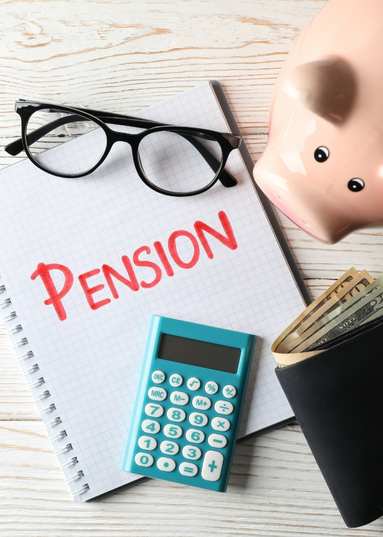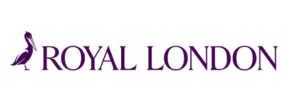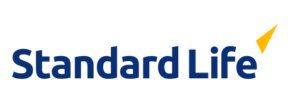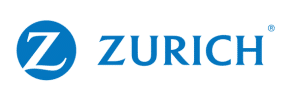Pension Advice in Ireland

Planning Made Easier With Pension Advisors
Greenway Financial provides expert pension advice in Ireland, helping individuals and businesses plan for a secure financial future.
Our customised solutions ensure you maximise tax benefits, optimise retirement savings, and choose the right pension scheme for your needs.
With a focus on long-term financial security, we guide you through every step of the process. Trust Greenway Financial for professional, personalised pension planning that supports your retirement goals.
Contact Us Today
Call 01 853 2727 for your free initial consultation
Best Pension Plan Services in Ireland
The state pension alone may not be enough to support your lifestyle when you retire. This is why investing in a private Irish pension plan is a great solution.
Whether you are an employee, self-employed, a company director or already retiring, you need to plan for retirement.
Our pension advisors help you choose the best pension plan by comparing multiple options and finding the right one. You will save time and have a clear understanding of your options.
If you need pension advice in Ireland, we can review it and advise you on getting the most from it.


Choosing The Right Pension With Greenway Financial
Personal Retirement Savings Account (PRSA)
A PRSA is a flexible, portable pension that suits individuals of all employment types. Whether you are self-employed or moving between jobs, this pension allows you to make contributions at your convenience.
Personal Pensions
Designed for self-employed individuals and those without an employer-sponsored pension, a personal pension provides a tax-efficient way to save for retirement. You can contribute based on your income level.
Self-Directed Pensions
A self-directed pension gives you full control over your investments, allowing you to select specific assets such as stocks, bonds, and property.
Personal Retirement Bond (PRB)
If you are changing jobs and want to retain control over your accumulated pension fund, a personal retirement bond is an excellent solution.
Executive PRSAs
This pension plan is specifically designed for company directors and key employees in small to medium-sized businesses. It offers similar benefits to a standard PRSA but with added flexibility in investment options.
Additional Voluntary Contributions (AVCs)
AVCs help individuals boost their retirement savings beyond their standard pension contributions. Whether you want to maximise your pension fund before retirement or make up for a late start, AVCs provide an effective tax-saving strategy.
Pension Tools
Pension Calculator
Use our custom pension calculator to see what your income in retirement could be and the amount of tax you can save.
Pension Tax Relief Calculator
Use our pension tax relief calculator to learn how pension tax relief works and the amount of income tax you can save.
Maximum Pension Contribution
There are limits on what you can invest in your pension. Find out what your maximum pension contribution is.
Pension Benefits
- Save on income tax.
- Tax-free cash sum at retirement.
- You get Income tax relief on your contributions.
- Take control of your pension fund.
- Ensure you have enough income in retirement.
Free Consultation
- Compare major Irish providers.
- Projections on monthly payments.
- Detailed product report.
- Long-term support for your pension.
- Advice on how to use your pension.
- Available for your questions.
Who Can Start A Pension
- Employed, self-employed & retired people.
- Individuals who already have a pension and want to increase their savings and growth.
- Individuals who want to retire early and unlock their pension.
- Company Owners and Directors who want to save on tax.
Our Agency Partners






What Is a Pension?
A pension is an investment fund in which a pension member makes contributions during their lifetime. The goal is to save money in the long run and then use that money as income after retirement. To learn more about the reasons to start a pension, click here for pension investment advice.
How do pensions grow?
Pensions have 3 types of tax relief!
Your fund grows tax-free until you take your pension benefits, the only kind of investment account that can do this. When you retire, you can take a tax-free lump sum of up to 25% of your fund. While you’re saving, your contributions reduce your own income tax, making a pension the best value long-term savings product.
At retirement, you take your pension benefits and choose how you’ll use your fund to provide an income in retirement. Several options are available to you.
Click here to learn to get pension advice in Ireland.

How Do Pensions Work in Ireland?
Stage 1: Building your pension fund
1. How much money?
A pension aims to replace your working income once you retire.
It’s essential to know what your costs are, and how much income you’ll need on top of the State Pension.
Although some of your costs will change when you retire, generally, people like to keep the same standard of living that they have during their working life.
2. Fix Your Monthly Contributions
To reach the final amount of money, you must contribute monthly or yearly to your pension plan.
After investing a % of your income in your pension, you should still be able to cover your regular expenses and also be able to save money. Your pension is a savings fund, but you can’t access it for a long time.
A financial pension advisor will give you pension investment advice and can help you determine how much is reasonable to invest each month.
3. Pick Your Fund
The type of fund you choose depends on your situation, age, and the level of risk you are comfortable with.
When you have a work pension, your employer scheme usually has a range of funds for you to choose from.
However, you can have more funding choices with personal pensions.
Contact us for pension investment advice.
Example 1: Low-risk Investment
- Lisa is 25 years old.
- Plans to retire at 67.
- Lisa earns €31,000 per year.
- She puts 15% of her salary in her pension each year.
- Over 40 years, Lisa invests €186,000 in her pension.
In a low-risk pension fund, her fund could build to €190,307 but could be as low as €152,408.
Lisa has an 11% likelihood of getting back more than she invested.
Lisa’s big risk is that her fund won’t outperform inflation.
Because Lisa is young, she should explore higher-risk funds, while her fund has time to recover from volatility.
Example 2: medium-risk Investment
- Brian is 25 years old.
- Plans to retire at 67.
- Brian earns €31,000 per year.
- He puts 15% of his salary in his pension each year.
- Over 40 years, Brian invests €186,000 in his pension.
In a medium-risk pension fund, his fund could build to €458,731 but could be as low as €171,550.
Brian has a 92% likelihood of getting back more than he invested.
Brian may wish to move to lower-risk investments as he approaches retirement.
Example 3: high-risk Investment
- Sam is 25 years old.
- Plans to retire at 67.
- Sam earns €31,000 per year.
- She puts 15% of her salary in her pension each year.
- Over 40 years, Sam invests €186,000 in her pension.
In a high-risk pension fund, her fund could build to €1,087,737 but could be as low as €139,981.
Sam has an 87% likelihood of getting back more than she invested.
Sam’s big risk is that her fund could lose value right before her retirement, due to the volatility of her investments.
She can switch to medium risk funds as she approaches retirement.
Watch Your Pension Funds Grow Tax-Free
Once you’ve set up your fund, all you need to do is contribute monthly and watch your pension grow.
The advantage of pensions is that they grow free of tax until you decide to draw your retirement benefits. However, there are management charges on your fund, which vary depending on your chosen pension product.
How Do Pensions Work in Ireland?
Stage 2: Accessing Your Fund At Retirement
1. When you're ready to retire
When you want to retire contact your pension advisor or go directly to your pension provider.
You normally have the choice to take 25% of your pension fund as a tax-free lump sum.
With the remainder of your pension fund, you have two options.
- Set up an Approved Retirement Fund (ARF).
- Set up an Annuity.
2. ARF (Approved Retirement Fund)
An approved retirement fund (ARF) is another investment product that takes your pension fund and invests it to continue to grow.
You have a choice of funds specifically designed for people in retirement.
You must take a minimum of 4% each year as income from your ARF.
If your fund has performed well this 4% might only be the growth of the fund in the last 12 months.
This leaves your capital intact to grow again in the next 12 months.
ARFs are also 100% inheritable so they can pass to a partner or spouse.
3. Annuity
An annuity is a guaranteed income from your pension. It can be a good option if you don’t want any risk with your retirement fund.
Your pension provider will provide you with an annual guaranteed amount of money.
You have the option of choosing an Annuity that increases at a set rate each year, guarantees payment for a specific number of years or can provide a percentage of your income to your spouse after you die.
Steps to Get Started
STEP

Contact Us
Contact us by phone at 01 853 2727.
You can also book a consultation here.
STEP

Our advisors will take some information about your situation from you.
STEP

We offer you fair and balanced advice about how to achieve your goals.

Book a Free 1:1 Initial Consultation
Let’s get on a call to discuss your personal and business finances with our experienced financial planners!
FAQs About Pension Advice in Ireland
What is a Pension?
Pension funds are investment products, which means that the value of your fund can fall as well as rise. Most pensions are Defined Contribution Schemes, where you’re committing to contributing a certain amount per month or per year.
Pensions Vs Savings
A pension fund is a superior retirement plan compared to savings for several reasons:
Interest rates are currently very low. This means any funds held on deposit are unlikely to increase in value substantially.
By comparison, Pension funds are designed to be kept for 20 years or longer. You will have no access to many funds until your average retirement age, between age 60-75.
This should give your fund enough time to recover growth if it falls in value. The longer you keep your contributions invested, the more likely your fund will grow in value.
Unlike savings, your pension contributions can be taken from your gross income, before you pay tax, and then continue to grow tax-free.
Even though cash savings are important, you’ve still paid income tax on this money already, you’ll be charged Deposit Interest Retention Tax on the interest each year.
How does a Pension work?
Pension funds are used when you retire to provide a source of income in retirement, in addition to the State Pension. According to the CSO, the average full-time wage in Ireland is €37,646 p/a.
The State Pension is roughly €12,911.60 p/a. This is a dramatic shortfall for most people, even if their mortgage has been cleared and they no longer have housing costs.
Your employer may have their own scheme which you can join, where they aim for a fund that replaces a certain percentage of your final salary or an average of your service.
Otherwise, if you’re arranging your own pension provision, you can aim to either replace a certain percentage of your salary, e.g. 60%, or aim to build a fund that is a multiple of your salary, e.g. 12 times your salary.
What's the benefit of pension planning to me now?
While you’re building your pension fund, you can also benefit from Tax Relief on these contributions.
Over your working life, you’re entitled to claim tax relief on your contributions as a % of your salary. This % depends on your age, getting higher as you get older.
For example, contributing €100 could cost you €80 or €60, depending on your income tax rate.
If you’re 40 and earn €55,000 p/a, you could contribute €1,145 per month, at a cost to you of €687.50 per month.
You can see your Tax Relief Limits here on the Pensions Authority website.
Tell me about some reliable pension provider companies.
Greenway can advise and arrange the following pension products:
Get Reliable Pension Advice in Ireland
Pensions must be set up correctly, with the right investment strategy and the best possible costs for you.
Our financial advisors work hard to ensure that your pension strategy matches your long-term goals. We spend significant amounts of time researching and negotiating with product providers to find the best pension plan for you.
Retirement and Pension Planning can be overlooked by people in their late twenties, early thirties, or even their forties.
So keep in mind that the earlier you begin planning your pension, the more time you will have to build up your savings.

How We Can Help You

- Warning: Past performance is not a reliable guide to future performance.
- Warning: This product may be affected by changes in currency exchange rates.
- Warning: The value of your investment may go down as well as up.
- Warning: If you invest in this product you may lose some or all of the money you invest.
- Warning: If you invest in this product you will not have access to your money until you retire.
Greenway Financial Advisors Limited is regulated by the Central Bank of Ireland. Registered No. C168372
